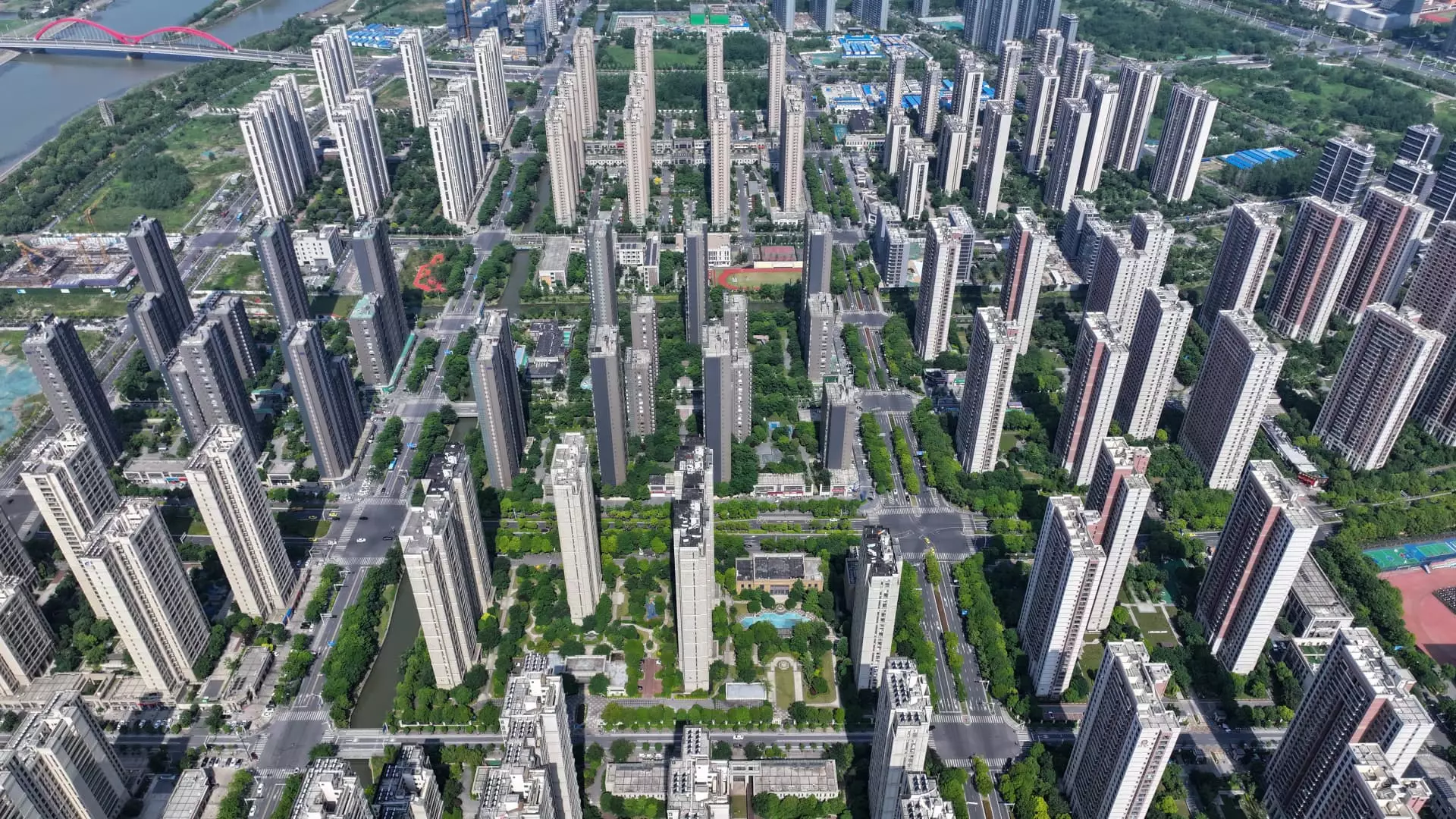The resurgence of property stocks listed in Hong Kong paints a picture of optimism as they reach their highest levels in over a year. Central to this bullish trend is the performance of the real estate sector, which has emerged as the most significant contributor to gains on the Hang Seng Index. A standout performer, Longfor Group Holdings, witnessed an impressive growth of over 25%, paving the way for other key players in the sector. This surge is indicative of the sector’s recovery as developers like Shimao Group saw their shares skyrocket by more than 87%, while Kaisa Group exhibited a robust increase of 40.48%. Such remarkable gains reinforce the notion that investor sentiment is improving, albeit against a backdrop of ongoing challenges.
Recent policy adjustments by the Chinese government have played a crucial role in boosting buyer confidence within the market. Key cities like Guangzhou, Shanghai, and Shenzhen have announced significant policy shifts aimed at relaxing home purchasing restrictions. For instance, the removal of all restrictions on home purchases in Guangzhou marks a substantial pivot intended to stimulate the market. Similarly, Shanghai’s changes to the tax-paying period further reflect a proactive approach to invigorate real estate transactions. By allowing greater purchasing flexibility, these interventions seek to foster stability amid a historically volatile sector.
Despite the current upswing, analysts like those from Morgan Stanley caution against overselling the positivity of the moment. While the easing measures are a step forward, the long-term recovery of the property market remains precarious. The commentary highlights a pressing reality: a significant structural imbalance persists due to a historic decline exacerbated by Beijing’s rigorous containment of excess debt in the sector. The property market, which once constituted over 25% of China’s GDP, has been on a downward trajectory since 2020, and reviving this vital economic segment is fraught with challenges. As most mainland Chinese financial markets close for the Golden Week holiday, the current gains could be misleading without sustained government commitment and effective policy execution.
As we look forward, the resilience of Hong Kong’s property stocks offers a glimmer of hope for investors. However, the path ahead is laden with uncertainties. The potential for further fluctuations remains high as the broader economic landscape responds to both domestic and international pressures. For sustainability in growth, real estate developers will need to navigate not only the immediate effects of policy changes but also the long-term implications of financial stability and consumer confidence. The sector’s recovery may not be as straightforward as suggested by recent performances, underscoring the importance of cautious optimism amidst a fragile recovery phase in China’s property market.
While the gains in Hong Kong’s property market signal a possible turnaround, they are accompanied by caveats reflecting the underlying complexities of the situation in mainland China. The recent policy measures provide a boost, but substantive and sustainable recovery remains contingent upon addressing the deeper systemic issues affecting the property sector.

